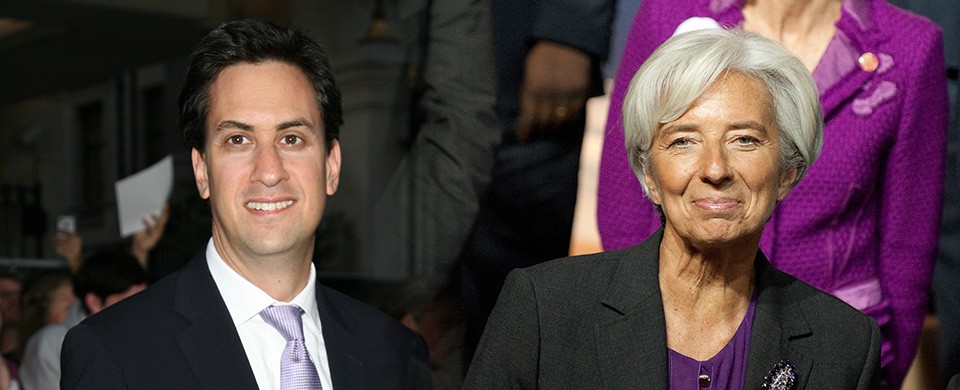Ever-growing inequality is unjust and unsustainable: we cannot allow vested interests to stop us doing something about it
“The world economy is a place of staggering extremes. The 85 richest people in the world have accumulated the same wealth as the bottom 3.5 billion. One in eight people go to bed hungry every night…. Any system that generates such excesses and excludes so many faces a risk of public rejection.”
You might think this is from a speech by Ed Miliband or possibly the Syriza leader Alexis Tsipras. Perhaps it even sounds like Russell Brand warming up for a verbal assault on capitalism. But you would be wrong.
In fact, those are the words of Paul Polman, chief executive of Unilever, speaking at a conference last year on ‘inclusive capitalism’ at which he worried aloud about how the system has become ‘dysfunctional in important ways’ such as the ‘wide disparities between rich and poor’ and its ‘reckless treatment’ of the environment.
And he isn’t a lone voice among corporate chiefs. Christine Lagarde, the managing director of the International Monetary Fund, spoke recently about ‘the capitalist threat to capitalism’ and said excesses could be ‘the seeds of its own destruction’, as Karl Marx famous predicted.
It’s a concern that has been around for a while. Billionaire investor George Soros warned in 1998 that if market forces are given free reign ‘even in the purely economic and financial arenas’ they will ‘produce chaos and could ultimately lead to the downfall of the global capitalist system’.
Soros and others among the super-rich have attempted to partially mitigate this through philanthropy. Bill and Melinda Gates and Warren Buffet have a foundation to promote healthcare and reduce poverty. Mark Zuckerberg recently donated $75million to a public hospital in San Francisco.
But, worthy as this charity may be, does it really address the root causes of a problem that is going from bad to worse?
According to Oxfam, if current trends continue, by 2016 the world’s richest 1% will have more wealth than the remaining 99%. In Britain, the charity says the five richest households have £28.2bn of wealth, more than all the 12.6m people in the bottom 20% of the population.
It is widely acknowledged that this is politically and socially unsustainable, but the trouble is anyone who suggests specific policies to redress the balance is shouted down by politicians and newspapers championing the vested interests of the wealthy.
Just look at the attacks on ‘Red Ed’ in recent weeks. All the Labour leader has proposed is a 50p tax rate on earnings above £150,000, a tax on homes worth more than £2m and tougher action on tax havens.
It’s hardly ‘the expropriation of the expropriators’ envisaged by Marx. A 50p tax rate only returns us to where it stood for most of Margaret Thatcher’s time in power, but it has been enough to provoke a chorus of criticism, even from among former Labour ministers and wealthy Labour donors.
Some have said the threshold should be higher than £150,000 so the 50p rate applies only to the super-rich.
But that’s where the problem of tax havens comes in: the richer you are, the more resources you have to pay clever accountants and bankers to hide your money. If you are completely shameless, you can even pop over to Geneva to pick it up in multi-currency ‘bricks’ of cash.
Making the super-rich pay their way isn’t going to be easy and, in the meantime, the very-comfortably-off may have to contribute a little more.
But that’s the price to be paid for softening the system’s inequalities by providing high quality public services free and equally to everyone.
And it is also, by the way, the price we pay for much needed infrastructure investment and business support services that will help generate growth and jobs.
If anyone has better ideas for tackling the ever-growing disparity between rich and poor, they should spell them out or drop the Labour leader a line.
But, of one thing I am certain: doing nothing is not an option. We cannot allow the self-interest of a few to stand in the way of doing what is right for the many.
And it is not ‘anti-business’ to say so.
Steve is also chief executive of Freshwater UK, the Cardiff-headquartered communications consultancy, and writes a monthly column, Business Talk, for the Western Mail newspaper and www.walesonline.co.uk, where this article first appeared on 16 February 2015. Follow him on Twitter: @FromSteveHowell

